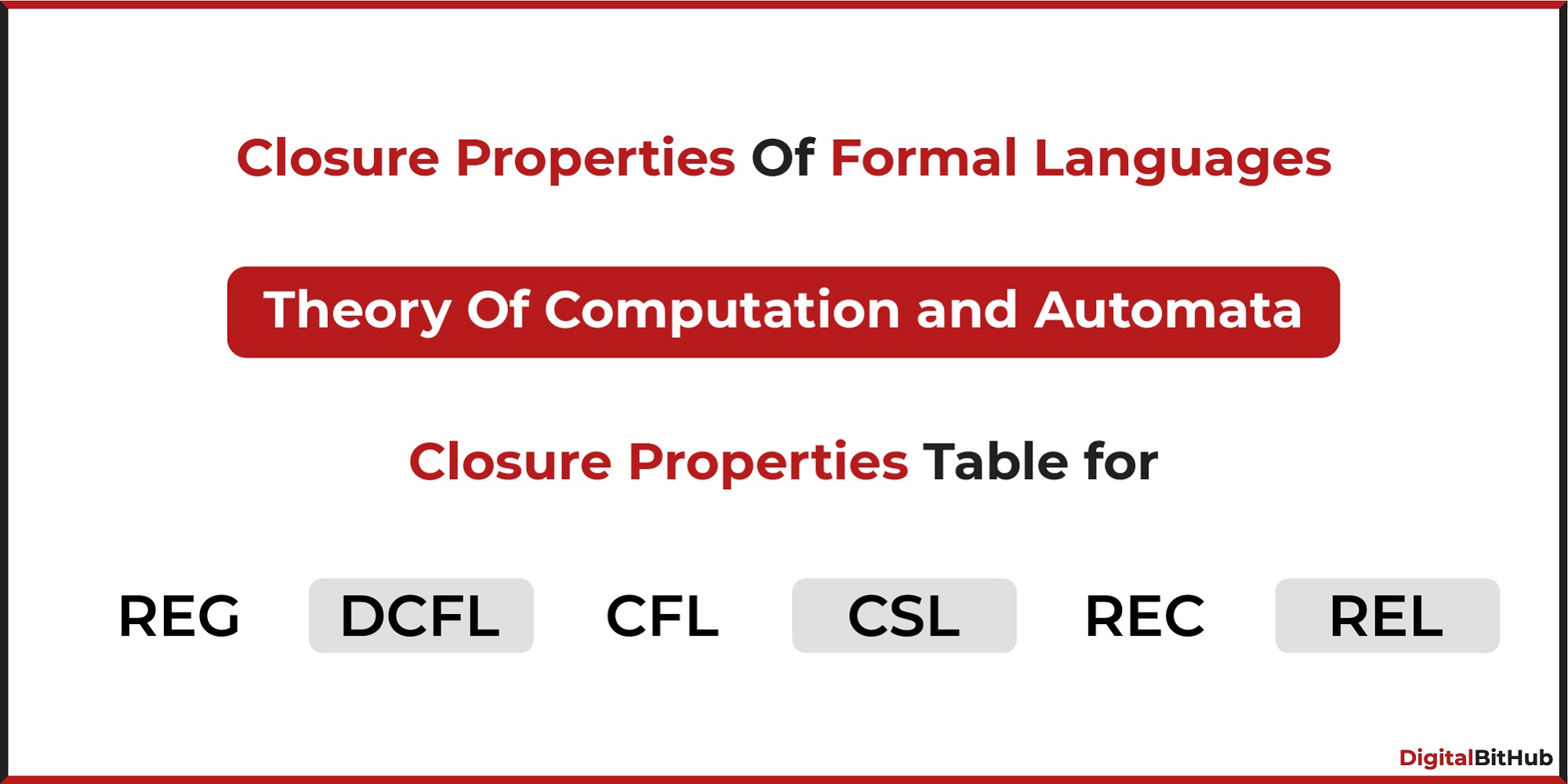Consider the following statements.
I. If L1 ∪ L2 is regular, then both L1 and L2 must be regular.
II. The class of regular languages is closed under infinite union.
Which of the above statements is/are TRUE?
A.
I only
B.
II only
C.
Both I and II
D.
Neither I nor II
Solution:
Statement I: False,
Let L1 = {anbn | n > 0} ⇒ CFL
L2 = Complement of L1
Then L1 ∪ L2 = {(a + b)*} ⇒ Regular language.
It is not necessary that both L1 and L2 are regular for the union to be regular as well.
Statement II: False, Let
L1 = {ab}
L2 = {aabb}
L3 = {aaabbb}
.
.
Ln = {anbn}
⇒ L1 ∪ L2 ∪ L3 ∪ . . .∪ Ln
⇒ {anbn | n > 0} ⇒ CFL, It is not Regular Language.
Regular languages are not closed under inifinite UNION.
(Read for more Closure Properties)
